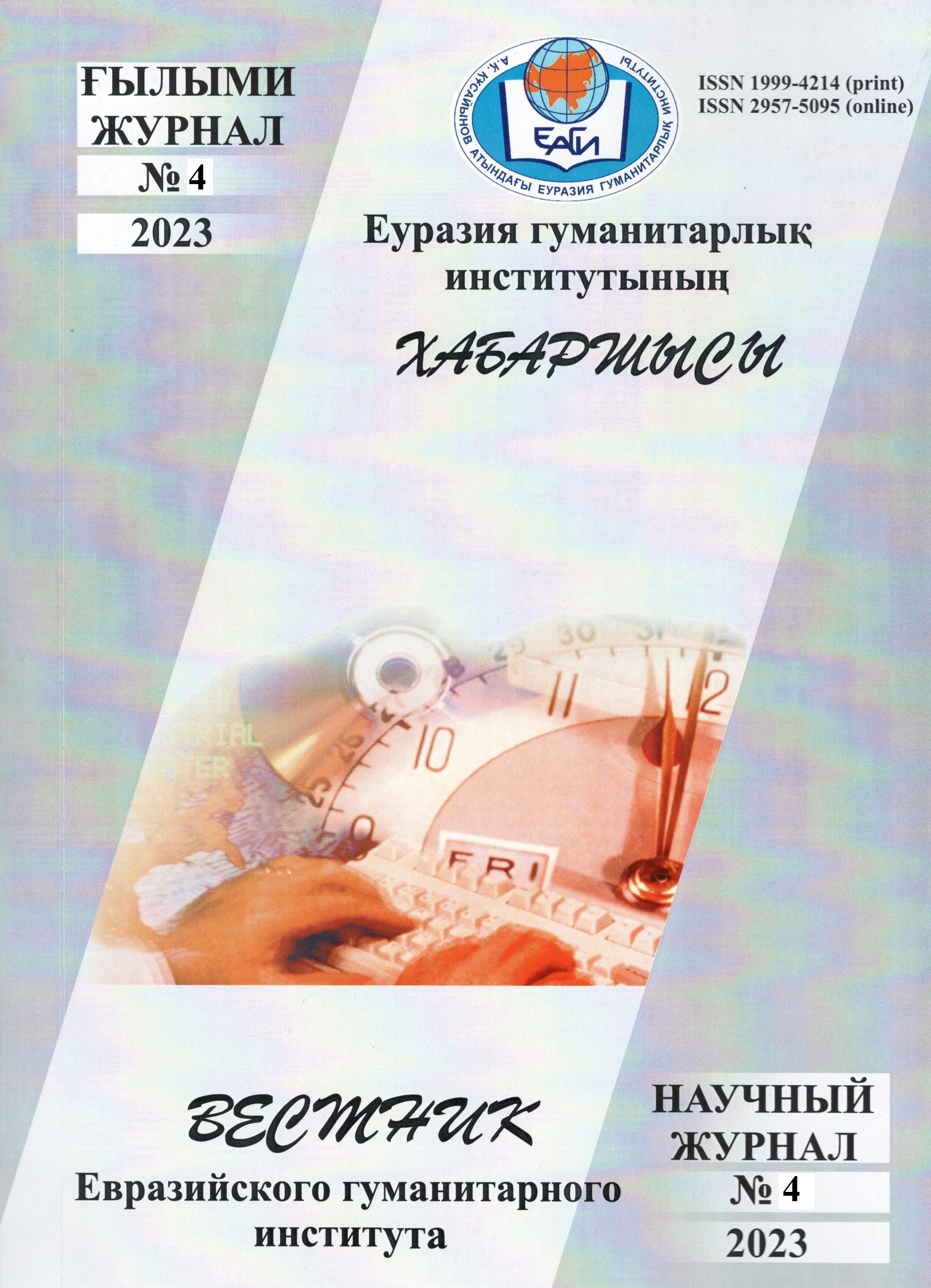THE EFFECT OF IMPLEMENTING CASE STUDY APPROACH ON STUDENTS LEARNING OUTCOMES IN TEACHING KAZAKH LEGAL DISCOURSE
DOI:
https://doi.org/10.55808/1999-4214.2023-4.19Keywords:
case study approach; law students; effect; soft skills; problem-solving, critical thinking, negotiation skills, presentation skillsAbstract
This study explores case study not as research method, but as a teaching method in teaching legal discourse pre-service law students. The purpose of this study was to explore the role of case study method in teaching Kazakh legal discourse and its effect on learning outcomes in the Kazakh language acquisition of law students. Thirty-five pre-service law students enrolled at the Department of History and Law at Sh.Ualikhanov Kokshetau University participated in this study. The present study was done during the academic year 2021/2022 at the Department of Philology and Pedagogy, Kokshetau University (KU) at Professional Kazakh language course (PKL). The present study applied mixed methods to identify the effect of case study approach on pre-service law students' performance and learning outcome. The data collection was done through questionnaires and interviews. The data were analysed descriptively using frequency and percentage gained from the questionnaire and interpretation of interview results. The research results have shown that the use of the case study method has a positive effect on students’ learning outcomes and developing language and soft skills. Many students noted the significance of case study approach as it combines theory and practice to facilitate students’ skills of working with diverse sources of information. Analysis of the participant's responses illustrates that among language skills best of all students managed to enhance their speaking skills and listening skills. Furthermore, besides language skills, PKL course learners indicated that the case study approach had a great impact on developing their soft skills such as problem-solving and decision-making skills, critical and analytical thinking skills, negotiation, and presentation skills, teambuilding skills, interpersonal skills, anticipating skills in problem identification and solving.


 Қазақ тілі
Қазақ тілі
 Русский
Русский
 English
English








